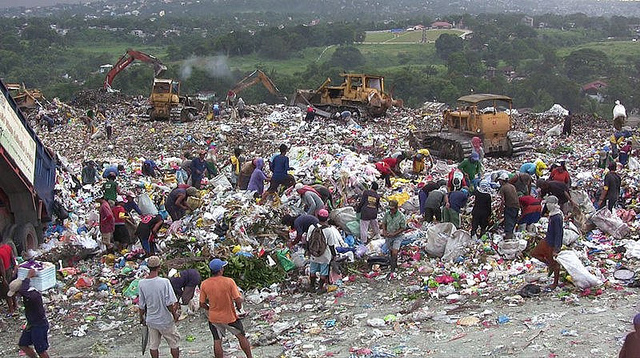News
Pinoys dispose 164-M sachets every day, report says

“Despite expanding Zero Waste strategies, cities and municipalities will be left with around 20% of waste that they cannot manage—sachets and other single use plastics—preventing them from fully achieving Zero Waste goals,” it said. (File photo by Inf-Lite Teacher/Flickr, CC BY 2.0)
Almost 164-million pieces of sachets were thrown away by Filipinos every day, a report by Global Alliance for Incinerator Alternatives (GAIA) revealed on Thursday, March 7.
In its report titled, “Plastics Exposed: How Waste Assessments and Brand Audits are Helping Philippine Cities Fight Plastic Pollution,” the environmental group said the Philippines use around 59.7-billion pieces of sachets every year.
It found that an “average Filipino” uses 591 pieces of sachets, 174 shopping bags, and 163 plastic labo (literally – translucent; the thin kind of single use plastic) bags annually.
Almost 48-million shopping bags are used in the country every day, roughly around 17.5-billion pieces per year. The use of plastic labo, meanwhile, is at 45.2-million pieces a day or 16.5-billion pieces a year.
The report also found that every day, there are three million diapers, or 1.
1-billion a year, are thrown away in the Philippines.
“These figures show that the sheer volume of residual waste generated daily is beyond the capacity of barangays, cities and municipalities to manage: the problem is the huge amount of single-use plastics being produced, not the way the waste is managed,” GAIA said.
The group said the data in the report was gathered through the waste assessment and brand audit (WABA) tool that Mother Earth Foundation (MEF) developed. MEF is a group that implements GAIA’s Zero Waste Cities project in the Philippines.
The data was compiled from 21 waste assessments done in six cities and seven municipalities in the country by MEF and other local government project partners.
Even after the implementation of Zero Waste strategies, the report said: “cities can only achieve a maximum of 70-80 percent waste diversion.”
“Despite expanding Zero Waste strategies, cities and municipalities will be left with around 20% of waste that they cannot manage — sachets and other single-use plastics—preventing them from fully achieving Zero Waste goals,” it stressed.
“Clearly, plastics are a global problem with local repercussions, and it is the cities and municipalities, as well as ordinary citizens, who bear the brunt of the problem,” it added.
With this huge amount of plastic trashes, the report urged the Philippine government to have a comprehensive national plastic ban that will promote reusable bags. It should also regulate other single-use plastic products, mandate manufacturers to look for an alternative way of packaging their products, direct diaper companies to present viable alternatives for disposable diapers, and strengthen ban against waste incineration.
“As long as the mass production of throwaway plastics continues unabated, cities and countries will find it harder and harder to cope,” it said.





















